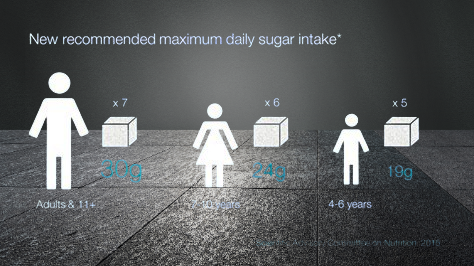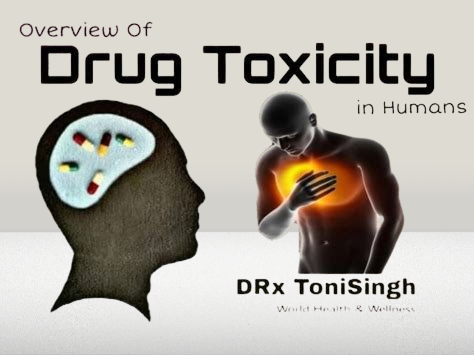Table of Contents
Did you know that high sugar intake is linked to heart disease? The correlation between excessive sugar consumption and cardiovascular health issues has become a pressing concern in recent years. As many studies have indicated, diets high in added sugars can lead to a slew of health problems, including obesity, diabetes, and ultimately, heart disease. According to the World Health Organization, it is recommended that adults limit their sugar intake to less than 10% of their total daily calories, yet many individuals far exceed this guideline. This disconnect highlights the importance of addressing sugar consumption as a critical element of heart health.
The average person consumes an alarming amount of sugar, often without even realizing it. Many processed foods contain hidden sugars that can contribute significantly to daily intake. The consumption of sugar not only leads to weight gain but also adversely affects cholesterol levels and increases arterial stiffness. This chain reaction can pave the way for cardiovascular issues that often go unnoticed until it is too late. Furthermore, excessive sugar intake can elevate triglyceride levels, contributing to the buildup of fat in heart arteries and increasing the risk of a heart attack or stroke.
Reducing sugar from one’s diet is not merely a pathway to weight management; it is an essential step toward enhancing overall heart health. In the following sections, we will explore effective strategies to minimize sugar intake, offering practical advice that can help individuals prioritize their well-being. By understanding the detrimental effects of high sugar consumption, one can be inspired to make healthier choices. As we dive deeper into this topic, the aim is to empower readers with knowledge and actionable steps for healthier living.
Understanding Sugar’s Impact on Heart Health
Excessive sugar consumption has garnered notable attention in recent years, particularly concerning its adverse effects on heart health. When individuals consume high amounts of sugar, the body experiences an increase in calorie intake that can lead to significant weight gain. Research indicates that this added weight places additional strain on the cardiovascular system, contributing to conditions such as hypertension and increased cholesterol levels. These weight-related issues create a cascading effect, heightening the risk of developing heart disease.
Moreover, refined sugars found in sweetened beverages and processed foods can trigger inflammatory responses within the body. A study published in the Journal of the American College of Cardiology identified a direct correlation between the ingestion of added sugars and the incidence of cardiovascular disease. The findings suggest that high levels of sugar lead to insulin resistance, a condition that negatively impacts the metabolism of fats and carbohydrates, further exacerbating heart health concerns.
The mechanism by which sugar influences blood pressure is equally concerning. Excessive sugar intake can result in an increase in the production of fat cells, which in turn elevation levels of a hormone known as leptin. Elevated leptin levels are associated with systemic inflammation and can contribute to increased blood pressure. Additionally, added sugars are often linked to poor dietary choices, further complicating the nutritional landscape. Individuals who consume high amounts of sugary foods typically lack essential nutrients that promote heart health, such as fiber, vitamins, and healthy fats.
In light of these insights, it is crucial for individuals to be mindful of their sugar consumption. The body requires a balanced diet rich in whole foods to function optimally and maintain heart health. By understanding the negative impacts of sugar on cardiovascular health, one can make informed dietary choices and work towards a healthier lifestyle.
The Hidden Sources of Sugar
Maintaining heart health is a priority for many individuals, yet one critical aspect often overlooked is the presence of hidden sugars in various food items. These sugars can significantly contribute to excessive consumption without individuals realizing it. Foods that are typically perceived as healthy, such as sauces, dressings, and even snacks, can contain substantial amounts of added sugars that may undermine dietary efforts aimed at reducing sugar intake.
A common culprits is salad dressings. Many individuals opt for dressings under the assumption they are making a healthy choice; however, many bottled dressings contain added sugars to enhance taste. It is crucial to examine labels closely, as some dressings can have higher sugar content than desserts. Additionally, sauces like ketchup and barbecue sauce often contain significant sugar levels, aimed at improving flavor but ultimately increasing calorie intake without nutritional benefit.
Snacks marketed as “low-fat” or “sugar-free” may also be misleading. To compensate for reduced fat content, manufacturers often substitute sugar in larger amounts, resulting in snacks that are not as healthy as they seem. Granola bars and flavored yogurt are famous for this—though they may be packed with oats and fruit, they can also harbor substantial amounts of sugar. Breakfast cereals, too, frequently contain hidden sugars, even those aimed at children, which can lead to unexpected spikes in daily sugar consumption.
Therefore, individuals aiming to improve heart health should adopt a vigilant approach towards food labels. Reading through ingredient lists and noting the sugar content, including all variations of sugar, is essential. This habit will help unearth hidden sugars in foods that are otherwise deemed healthy, allowing for more informed dietary choices that support heart health.
Simple Steps to Reduce Sugar Intake

Reducing sugar intake is a crucial step towards improving heart health and overall well-being. Implementing simple changes in daily habits can lead to significant reductions in sugar consumption. One effective strategy is to swap sugary snacks for healthier alternatives, such as fresh fruits or nuts. These options provide natural sweetness without the added sugars found in processed foods. For instance, instead of reaching for a cookie, consider enjoying an apple or a handful of almonds. This not only satisfies sweet cravings but also enhances nutrition.
Another practical tip is to choose unsweetened beverages instead of sugary drinks. Beverages like soda, energy drinks, and flavored teas often contain high amounts of added sugars. Opting for water, herbal tea, or sparkling water with a splash of lemon can drastically cut daily sugar intake while keeping hydration levels optimal. Reading labels is also essential; many products contain hidden sugars, so buying drinks labeled as ‘unsweetened’ can help avoid unintended sugar consumption.
Additionally, cooking at home is an effective way to control the ingredients used in meals. Processed and pre-packaged foods often have high sugar content, which can easily be avoided by preparing meals from scratch. Utilize fresh ingredients, herbs, and spices to enhance flavor instead of relying on sugar-laden sauces and condiments. Meal prepping can also simplify this process, making it easier to maintain a low-sugar diet throughout the week.
Lastly, educating oneself about the different names for sugars that appear on food labels can be beneficial. Ingredients like high-fructose corn syrup, cane sugar, and honey all contribute to sugar intake, even if they come from natural sources. By integrating these steps into daily routines, individuals can effectively reduce sugar consumption and cultivate healthier habits that promote better heart health.
Benefits of Cutting Sugar for Your Heart

The relationship between sugar intake and cardiovascular health has garnered significant attention in recent years, emphasizing the necessity of reducing sugar consumption to promote a healthier lifestyle. One of the primary benefits of cutting sugar is the improvement in cholesterol levels. High sugar intake is associated with increased levels of triglycerides and low-density lipoprotein (LDL) cholesterol, or “bad” cholesterol, which contributes to the development of atherosclerosis. By lowering sugar intake, individuals can improve their lipid profiles, thus reducing the risk of heart disease.
Moreover, reducing sugar can play a crucial role in weight management. Excessive sugar consumption often leads to weight gain, as sugary foods and beverages are calorie-dense but nutritionally poor. Obesity is a significant risk factor for various heart-related conditions, including hypertension and heart failure. By cutting down on sugar, individuals not only decrease their caloric intake but also promote better weight management, ultimately benefiting their heart health.
In addition to cholesterol and weight considerations, cutting sugar contributes to improved overall heart function. A diet high in sugar is linked to an increased inflammatory response in the body, which adversely affects the heart’s performance. By incorporating a lower-sugar diet, individuals can help minimize this inflammatory response, leading to better heart muscle function and reduced risk of cardiovascular events.
Furthermore, reducing sugar can also decrease the risk of developing type 2 diabetes, another substantial risk factor for heart disease. Long-term high sugar intake has been correlated with insulin resistance, leading to diabetic complications that can exert additional strain on cardiovascular health. Thus, by reducing sugar consumption, one can tackle these interconnected health issues more effectively.
Embracing Natural Sweeteners

As health concerns surrounding refined sugars continue to rise, many individuals are seeking alternatives that can satiate their sweet cravings without compromising cardiovascular health. Natural sweeteners, including honey, maple syrup, and stevia, offer viable options that can enhance the flavor of various dishes while providing some beneficial properties compared to traditional sugar.
Honey, for instance, not only serves as a sweetener but also contains antioxidants and has anti-inflammatory properties. It can easily be integrated into a variety of recipes; whether drizzled over oatmeal or used in salad dressings, honey adds a delightful sweetness. A teaspoon or two can often suffice, meaning that less is typically required to achieve the desired taste, thus reducing overall caloric intake.
Maple syrup is another nutritious alternative, boasting a rich array of minerals, including manganese and zinc. It is particularly well-suited for breakfast items like pancakes, yogurt, or even as a natural sweetener in smoothies. Its unique flavor can bring depth to both sweet and savory dishes, making it a versatile pantry staple.
Stevia, derived from the leaves of the Stevia rebaudiana plant, is calorie-free and does not impact blood sugar levels, making it a favored option for those managing weight or blood sugar-related concerns. It is available in liquid, powdered, and granular forms, allowing for easy incorporation into various beverages and baked goods. While stevia is significantly sweeter than sugar, using it sparingly can provide just the right amount of sweetness.
Incorporating these natural sweeteners into your diet can greatly enhance your culinary experience while promoting better heart health. Whether you choose honey, maple syrup, or stevia, each option allows for satisfying sweet flavors without the adverse effects associated with refined sugars.
Building a Balanced Diet
A balanced diet is essential for maintaining overall health, with a particular emphasis on heart health. Consuming a variety of whole foods can significantly contribute to reducing the risk of heart disease and improving overall well-being. Whole foods, which include fruits, vegetables, whole grains, lean proteins, and healthy fats, are packed with essential nutrients and fiber. These components play an important role in promoting optimal heart function and minimizing the risk factors associated with cardiovascular issues.
Incorporating a diverse range of fruits and vegetables into daily meals offers a wealth of vitamins, minerals, and antioxidants that are vital for heart health. Ideally, individuals should aim for at least five servings of fruits and vegetables each day. These natural foods not only provide crucial nutrients but also help in regulating blood pressure and reducing cholesterol levels. Brightly colored fruits and vegetables, such as berries, leafy greens, and citrus fruits, are particularly beneficial due to their high antioxidant content.
Lean proteins are another essential component of a balanced diet. Sources of lean protein, such as fish, poultry, beans, and legumes, are high in essential amino acids while being low in saturated fat. Including these options in meals can help in maintaining healthy cholesterol levels and promote muscle health, crucial for effective metabolism and energy levels.
It is equally important to minimize the intake of processed foods, as these often contain high amounts of added sugars, unhealthy fats, and sodium. Such substances can negatively impact heart health and contribute to weight gain. Instead, by prioritizing whole foods and limiting processed options, individuals may experience long-term benefits that extend beyond heart health, impacting overall wellness and vitality.
Tips for Staying Motivated
Maintaining motivation during dietary changes can be challenging, especially when trying to reduce sugar intake, which is often deeply ingrained in our routines. To ensure lasting success, it is essential to implement effective strategies that encourage persistence and commitment.
First and foremost, setting realistic goals is crucial. Instead of aiming for drastic reductions or an entirely sugar-free lifestyle at once, consider establishing achievable milestones. For instance, you might start by cutting out sugary beverages or reducing dessert intake to a specific number of days per week. This gradual approach allows your body to adapt while building a sense of accomplishment with each small victory.
Tracking your progress can also enhance motivation. Keeping a food diary or using mobile applications dedicated to monitoring dietary habits provides insights into consumption patterns and the effects of reduced sugar on your wellbeing. Not only does this practice foster accountability, but it also highlights successes, making it easier to visualize progress over time.
Finding a support system is another effective way to stay motivated. Share your goals with friends, family, or even join online communities focused on reducing sugar intake. Engaging with others who are on similar paths can provide encouragement, facilitate knowledge exchange, and serve as a reminder of the importance of your journey. Connecting with individuals who understand your struggles promotes a sense of belonging and accountability, which is vital during this transformation.
Celebrating small victories is essential in maintaining motivation throughout the process. Recognize and reward yourself for milestones achieved, whether that be treating yourself to a new cookbook, enjoying a spa day, or simply acknowledging the positive changes in your health. Positive reinforcement can significantly enhance your motivation to continue making healthier choices in your diet and lifestyle.
Conclusion and Call to Action

In today’s increasingly health-conscious society, the detrimental effects of excessive sugar consumption on heart health cannot be overstated. As discussed, elevated sugar intake contributes to numerous cardiovascular issues, including obesity, inflammation, and increased cholesterol levels. Moreover, the link between sugar-rich diets and conditions such as diabetes and hypertension serves as a crucial reminder of the importance of making conscious dietary choices. To promote a healthier heart, it is essential to understand the types of sugars present in our diets, from refined sugars to natural sugars, and their corresponding effects. By prioritizing whole, nutrient-dense foods while reducing added sugars, individuals can pave the way towards improved overall health and well-being.
Making small, manageable changes can lead to significant improvements over time. It is advisable to start by setting a personal sugar-reduction goal tailored to your lifestyle. Consider tracking your daily sugar intake and identifying hidden sources within packaged foods, beverages, and snacks. This awareness can inspire positive shifts and encourage alternative choices, such as opting for fresh fruits or natural sweeteners. Engaging in this journey is not only beneficial for your heart but sets a commendable example for friends and family members.
We encourage you to share your experiences and progress with others, fostering a supportive community focused on heart health. Together, you can motivate one another and explore various ways to cut back on sugar without feeling deprived. Remember, every small step counts in this journey towards a healthier life. So, take action today—start your path to better heart health by gradually reducing your sugar intake, and witness the positive changes that follow.



[…] Walking, a simple yet profoundly effective physical activity, has been substantiated by numerous studies as a vital component of maintaining good health. Engaging in walking for as little as 30 minutes each day can activate various biological processes that contribute to improved overall health. One of the primary benefits of consistent walking is its ability to enhance cardiovascular function. According to the American Heart Association, regular walking strengthens the heart, reduces the risk of heart disease, and improves blood circulation, leading to better oxygen delivery throughout the body. […]